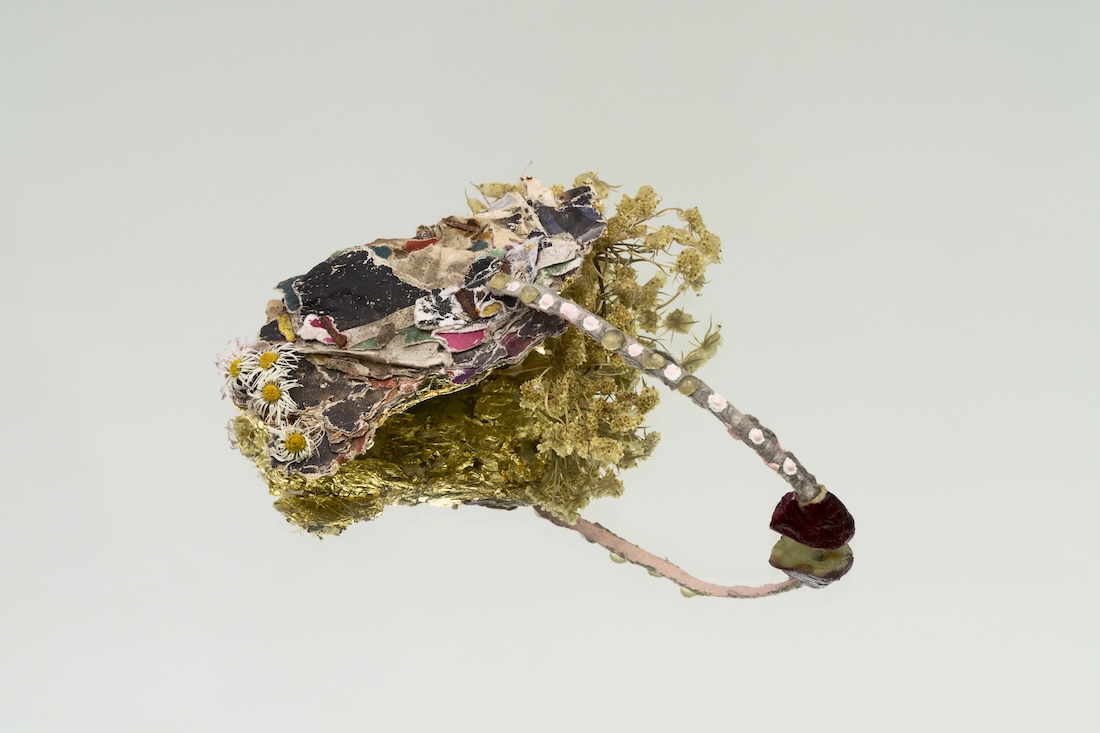Diana Dvora Falchuk
Reshimu
Diana Dvora Falchuk considers the intimate practice of collecting and altering objects—found, gifted, made, and embellished—in relationship to her Jewish-Venezuelan-American heritage.

- March 6 - 27, 2025
- Opening: Thursday, March 6, 6:00 — 8:00pm
Reshimu explores the material and spiritual dimensions of embodiment, decay, and co-creation through Falchuk’s collection of life-worn fragments that she has tended and transformed for nearly 25 years.
In Kabbalah (Jewish mystical tradition), the Hebrew word reshimu (רשימו) describes the impression of the divine and infinite light that coats all finite matter through the stages of creation and the sacred, ongoing labor of repair. Reshimu is at once material and spiritual. It is the residue of and recipe for interconnection. It reminds us that nothing is separate.
The works in Reshimu illuminate the asymmetries, breakdowns, and opportunities for healing that are inherent in laboring to create HaOlam HaBa (the world we imagine is possible) from within HaOlam HaZeh (the world that is).
Falchuk’s installations and mixed-media works on paper elevate the remnants she collects: a rain-warped poster, torn butterfly wing, chipped birthday crown, or petrified wad of gum. With great care, she deconstructs, mends, adorns, arranges, and depicts these objects. Her process births unlikely pairings and uncanny beings that simultaneously honor and interrogate her personal and familial relationships to labor, place, culture, and the body.
About the Artist
Diana Dvora Falchuk (she/ella) is a mother, artist, and facilitator of social change whose creative practices blend mediums and contexts to cultivate belonging, solidarity, and justice. Her work integrates mindful, embodied, spiritual, and ethical practices that allow us to notice and heal from patterns of separation and othering. Her public and gallery-based artworks have included interventions on mailboxes and utility poles; installation, sculpture, and works on paper; video, song, and performance; and projects for direct actions. Falchuk has received awards and honors for her art and arts-integrated activism from Americans for the Arts, Artist Trust, the American Association of University Women, the City of Seattle Management Association, and City Arts magazine. She holds a BA in English with a minor in fine arts from the University of Pennsylvania and a master’s in social work from the University of Washington.
